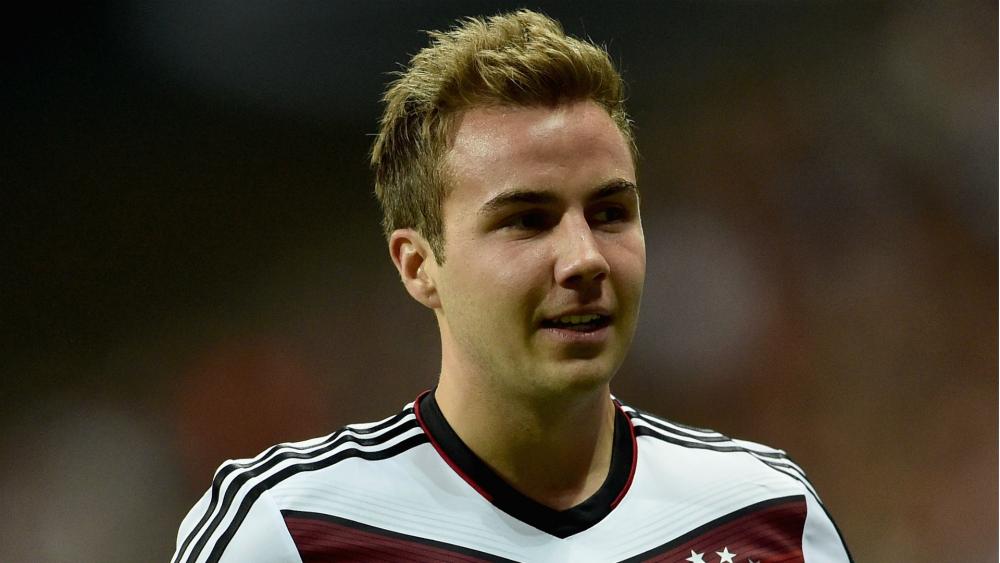The story of Hungary's 10-0 rout of El Salvador in 1982
It's a score that should only happen in playgrounds, but behind El Salvador'™s World Cup record rout was a farcical tale of civil war, corruption, disorganisation and schoolboy defending.
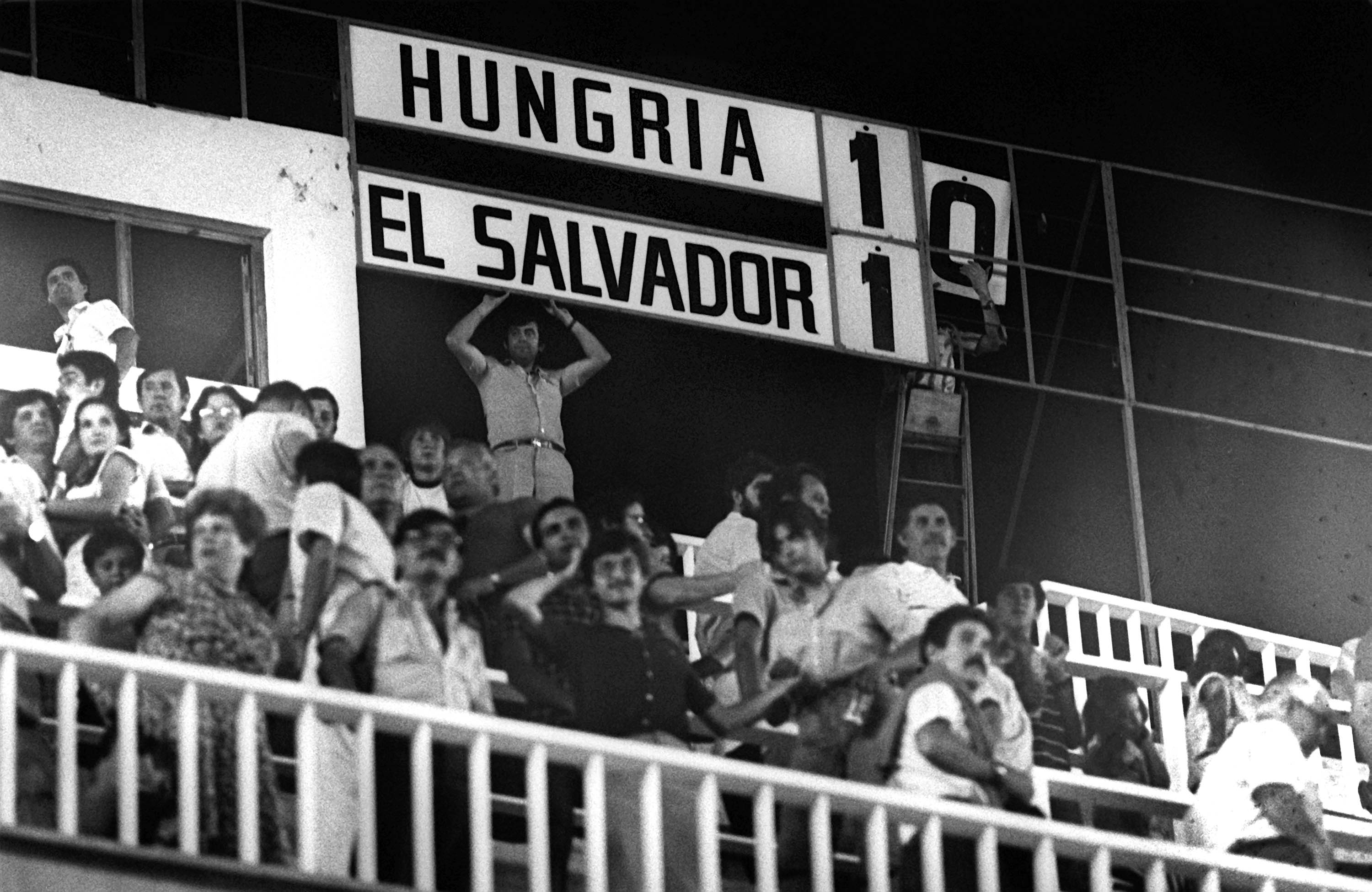
It is perhaps one of the best-known results in the history of football. On June 15, 1982, Hungary hammered El Salvador 10-1, setting a World Cup record that will stand forever.
The 23,000 people who attended Estadio de Nuevo Elche and paid 800 pesetas for a ticket - about £27 in today's money - could never have guessed that they were going to watch an historic game.
Behind that astounding result, however, lies the story of an El Salvador team whose World Cup campaign consisted of equal parts chaos and farce.
Their qualification was a miracle in itself, as civil war was tearing the country apart and wartime training wasn't easy, as some of the players recall: "If some of us arrived late, it was because we had to assist wounded people abandoned alongside the road," says defender Francisco Jovel.
Rumours suggest that some players favoured the military government and others sympathised with the guerrillas, but politics didn't matter in the dressing room.
A welcome escape
"All we know is that when we played the qualifiers, we made the killings from both factions cease," says another former player, Mauricio Alfaro. "The people united at least for a day. That was our greatest gift, the country was in deep suffering and we had the pressure of trying to reduce it."
Get FourFourTwo Newsletter
The best features, fun and footballing quizzes, straight to your inbox every week.
One by one, the Salvadorian minnows defeated their Central American rivals to gain qualification to Spain. But the group in which they were drawn was a bit of wake-up call.
All we know is that when we played the qualifiers, we made the killings from both factions cease. The people united at least for a day. That was our greatest gift, the country was in deep suffering and we had the pressure of trying to reduce it.
"Argentina were the defending champions, Belgium were recent European finalists and Hungary arrived with a goalscoring record in World Cups. We couldn't have had worse luck," says defender Carlos Recinos, now the owner of a shoe store.
El Salvador were the last of the 24 finalist teams to get to Spain, arriving after an exhausting 72-hour journey just three days before their debut against the Hungarians.
"Our itinerary seemed as though it was planned by the enemy," says defender Jaime Rodriguez.
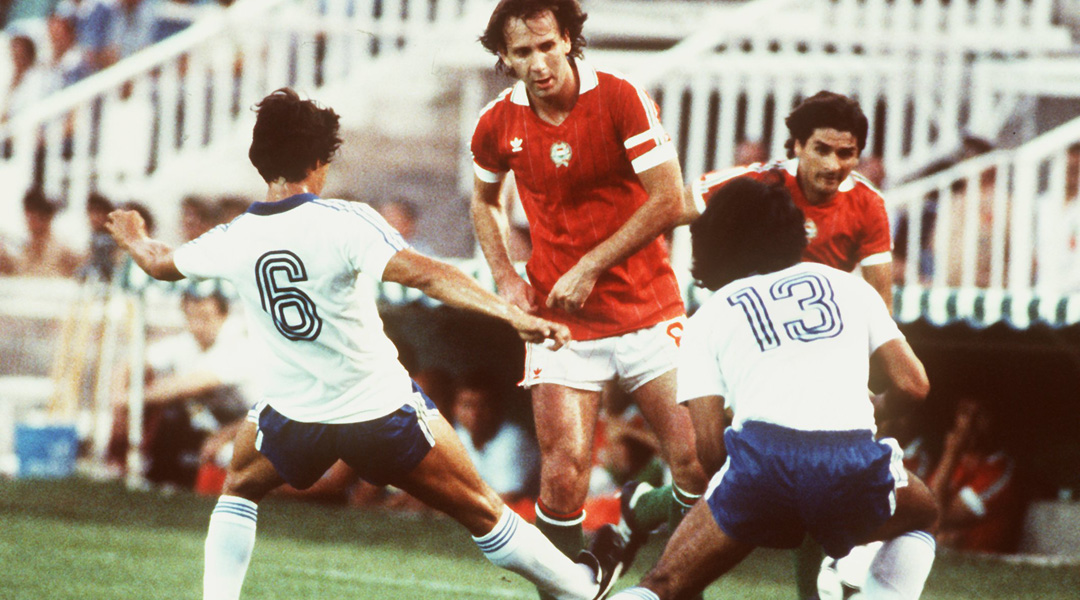
"Eight days before playing the Hungarians, they made us play a friendly against Gremio, then we jumped on a plane to Guatemala, spent a night in the airport, flew to Costa Rica, then the Dominican Republic and finally got to Madrid. From there we took another plane to Alicante.
"When we finally settled, our body clocks were nine hours ahead of European time. We couldn't get any decent sleep before our debut. Honduras, on the other hand, had arrived in Spain a month before the competition," he remembers.
El Salvador's FA hadn't helped morale when, incredibly, they registered only 20 players. Gilberto Quinteros and Miguel Gonzalez were left behind, according to the president, 'because a 20-man squad was more than enough'.
"It was a big blow, not only because the FA took two officials instead of two players, but also because these two members didn't attend a single game. They simply dashed off soon after arriving, on a European holiday," recalls goalkeeper Ricardo Mora, now a civil servant.
Even the team's accommodation was a crummy shooting lodge near Alicante. "We were treated as third-class visitors," says Mora.
"The bags and kit FIFA gave us were old - most bared the 1974 World Cup's logo. It was shameful." And on top of everything, they didn't have any balls for training.
"The officials said they'd been stolen. So we sent a player to the Hungarian camp to ask for some. They had received the 25 FIFA sent to every team and they lent us a couple. That was one day before the game," says Rodriguez.
Screen time
The night before the game, a Spanish agent offered the squad a tape of Hungary in action, so the players whipped round to buy it.
""They play just like Paris Saint-Germain," our manager told us while we watched it," says defender Mario Castillo. "We had beaten them in a friendly two weeks before. "We have to go and attack them as much as possible," he said. That was the biggest mistake of all time."
"When the national anthem was played, we forgot about everything we had been through. It was emotional," admits Magico Gonzalez.
Until match day, the Spanish press had focused on the war, but after 90 minutes their angle would change...
It wasn't the best of starts. Tibor Nyilasi, the Hungarian captain, scored after just three minutes.
Nyilasi recalls: "It was my 50th cap and it was very special; I scored the first and the tenth goal. That game is impossible to repeat. Had we played it 100 times, we would never have racked up 10.
"Actually they weren't as bad a team as the result suggests. The problem was that they just tried to go forward rather naively."
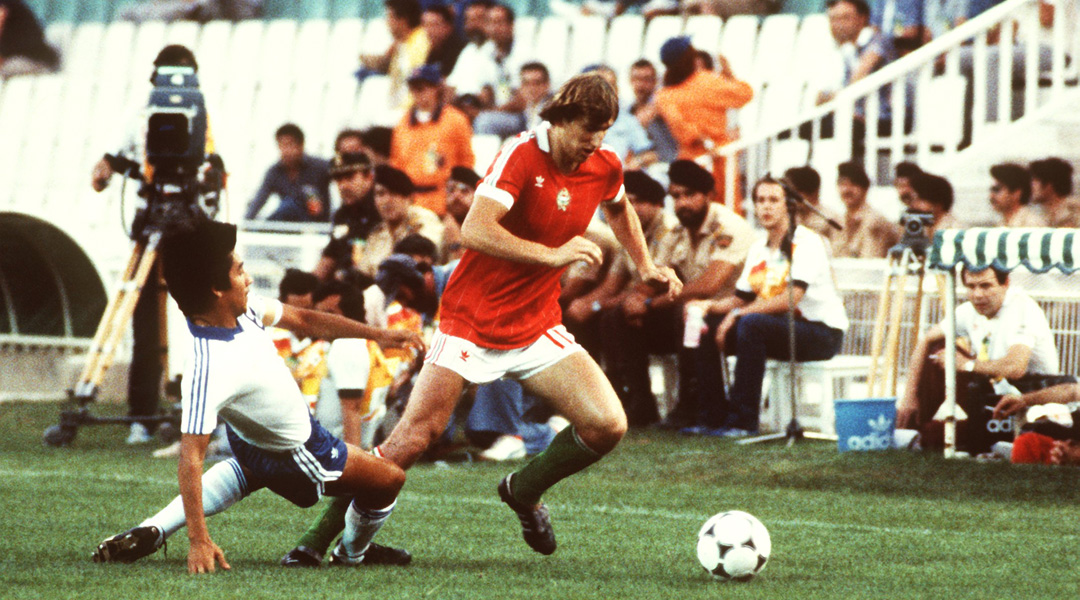
The odds didn't look good, but the first half wasn't a complete disaster: 3-0 at half-time wasn't as catastrophic as it was about to become.
"They had a number of goal attempts, so we weren't convinced that the game was over," explains Nyilasi.
The real problems began when a mix-up between keeper and defender led to the fourth goal going in. "We had never conceded more than three goals before. When they struck the fourth one, we really started losing our nerves," says Diaz Arevalo, who watched the game from the stands and still thanks the doctors who refused to let him play because of an injury.
After that fourth it was chaos. Fearing the worst, manager Mauricio Rodriguez told substitute goalkeeper Eduardo Hernandez to get ready, but he refused to be sent on under the circumstances.
"We didn't argue about it. I had wanted to protect Mora from conceding more goals, but then I realised that I risked ruining two goalkeepers' confidence on the same day. I left Mora on the pitch," says Rodriguez.
Still, the Salvadorians had one reason to smile. Luis Ramirez Zapata, nicknamed 'El Pele', scored the only goal for El Salvador that day, which still stands as the only goal ever scored in their two World Cups.
And even though the score stood at 5-1, he celebrated it as madly as Italy's Marco Tardelli would later do in the final.
The wounded beast
Ramirez's team-mates couldn't believe it. "Two of them rushed up and told me to shut up, because the last thing we wanted was to make the Hungarians angrier," he says.
"They were right to warn me, but it was too late and I was too euphoric. They netted five more in less than half hour."
El Salvador were totally unbalanced, with four forwards on the pitch and a practically non-existent defence. And Hungarian substitute Laszlo Kiss was unstoppable: he grabbed two records - the only substitute to score a hat-trick, and the quickest hat-trick in a World Cup.
"It was a terrible accident for them, but an accident that will remain forever. The poor sods probably thought they could beat us, and attacked us gung-ho - what a terrible mistake," says Kiss.
By the time Nyilasi scored that tenth goal, the man who worked the score board was improvising a way to add a second figure.
Goyzo Martos was the least happy of the Hungarians that day: he had to mark the daring Magico Gonzalez. The legend says that the skilful Salvadorian was chosen as man of the match despite the beating.
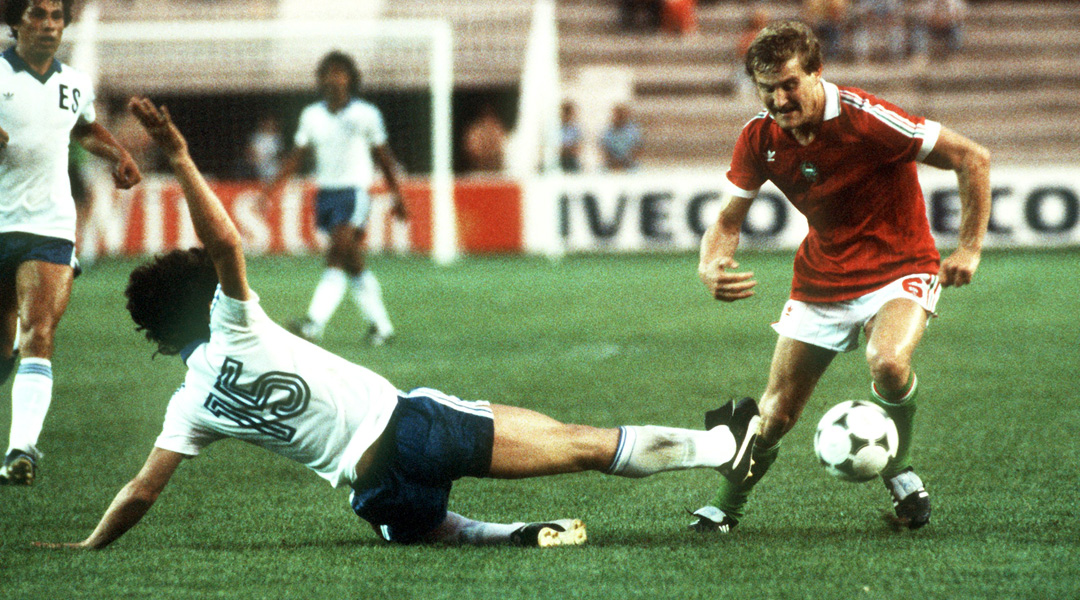
Despite their being no official award to confirm this, Gonzalez made it into the tournament's best XI and subsequently signed for Cadiz.
Ironically, some of the Salvadorian players still claim the Hungary match was their best performance of the tournament, but still the shame was unbearable.
"Of course, nobody swapped shirts: we weren't in the mood," remembers Jovel.
After the match, Belgium manager Guy Thys famously said that El Salvador were "FIFA's biggest shame". Later, he backed off. "I got carried away. In the two following games, they showed that they had just had a nightmare start, but they weren't such a bad team after all," he admitted.
There was no time to stew. El Salvador's Captain Norberto Huezo gave the players new instructions: "From now on, the manager doesn't decide anything. We will play defensively and recover our pride. It's our call; only we can save ourselves."
"It's true. In a week's work, we improved a lot," says Jovel.
El Salvador vs The Hotel Workers
Signs of such improvement came in the first practice match after the thrashing. "The waiters from our hotel challenged us and we beat them. I guess they were trying to cheer us up," Jovel says.
Before the next game against Belgium, which they lost 1-0, the relationship with the hotel staff had soured. "We had nicknamed one of the waiters and he found out.
"It was a funny name but he took it badly and insulted us. When the hotel managers found out, they fired him. We were appalled, so we started a hunger strike to get him reinstated. And we succeeded!"
If that wasn't enough of a distraction, a small earthquake then hit El Salvador and two worried players were told to stay, even though they wanted to go and see if their families had been hurt.
The team suffered yet another setback against Argentina, as the official in charge had forgotten to bring the players' documents.
"We were in the dressing room and the referee came to tell us that our IDs were missing, giving us 45 minutes to get them. Our hotel was 50 miles away.
"I doubt that we had a helicopter to get them, and the traffic was impossible. I think they finally allowed us to play without our credentials, just out of pity," says Mora.
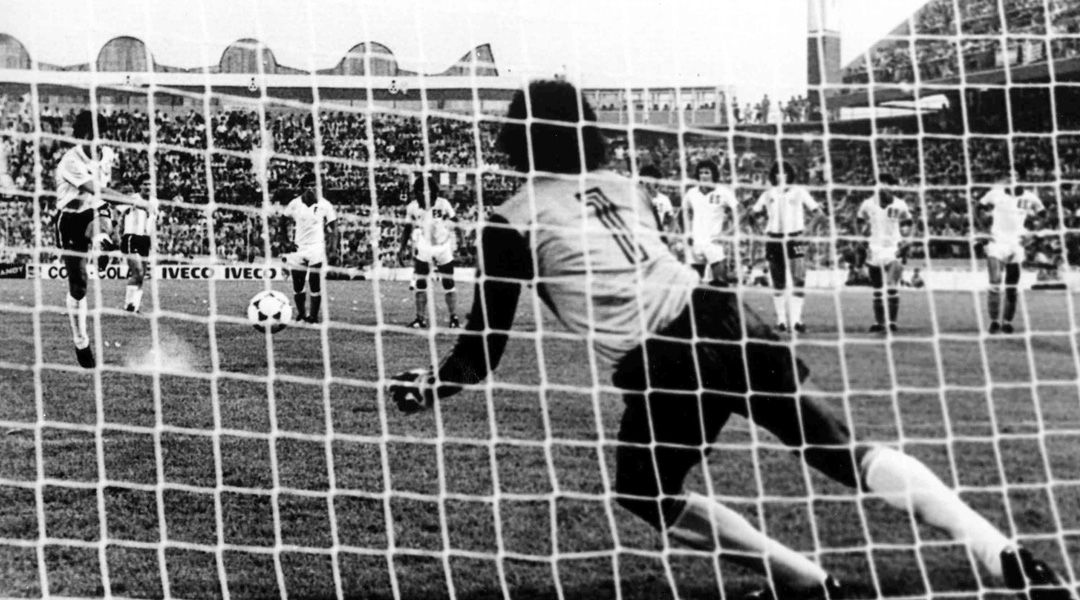
The last World Cup game for El Salvador was hard-fought and bad-tempered. "Americo Gallego called me 'a dirty guerrilla man', so I reminded him that the English had bombed their little ships in the Atlantic.
"We got carried away, but at least we stood up to them," admits Diaz Arevalo, now a schoolteacher.
Some Salvadorians claim they heard Maradona publicly announce that he alone would score 10 goals against them.
Manager Mauricio Rodriguez, the youngest at the World Cup, aged 36, never coached a team again. He moved into engineering, claiming he could earn more. But his name had been black-listed long before his decision.
"For being too arrogant, he couldn't score a single one against our defence. On the pitch, I reminded him of that and he laughed. But for a couple of mistakes, we would have tied it 0-0," adds Arevalo.
After the game, chaos ensued again. The two players selected for the post-match doping test, Mario Castillo and Mauricio Alfaro, drank too much beer and left the stadium 'in a happy state of mind', only to find out the team bus had left.
"We hailed a taxi", says Alfaro. "The problem was they kept offering us water, soft drinks or beer. So we went for the beers.
The national disgrace
Manager Mauricio Rodriguez, the youngest at the World Cup, aged 36, never coached a team again. He moved into engineering, claiming he could earn more. But his name had been black-listed long before his decision.
His assistant, Jose Castro, also quit. "Psychologically and morally I couldn't go on. What happened in Spain was too much," he confesses.
Players were ridiculed and even threatened when they got back home. "When we qualified, we were heroes and useful, then after we lost we were a disgrace and disposable. In every conversation, the 10-1 reared its head," says Jovel.
Except for Magico Gonzalez, most of them carried on with their careers bearing the cross of being involved in the most embarrassing World Cup game of all time.
"Everybody looked at the effects, nobody cared about the causes," moans Gonzalez. "Everybody remembers the number 10 but nobody remembers my goal," complains Zapata.
"I would have liked a proper tribute but they were waiting for us to insult and mock us. As the years went by, they even cancelled our free passes to attend the league games as fans."
